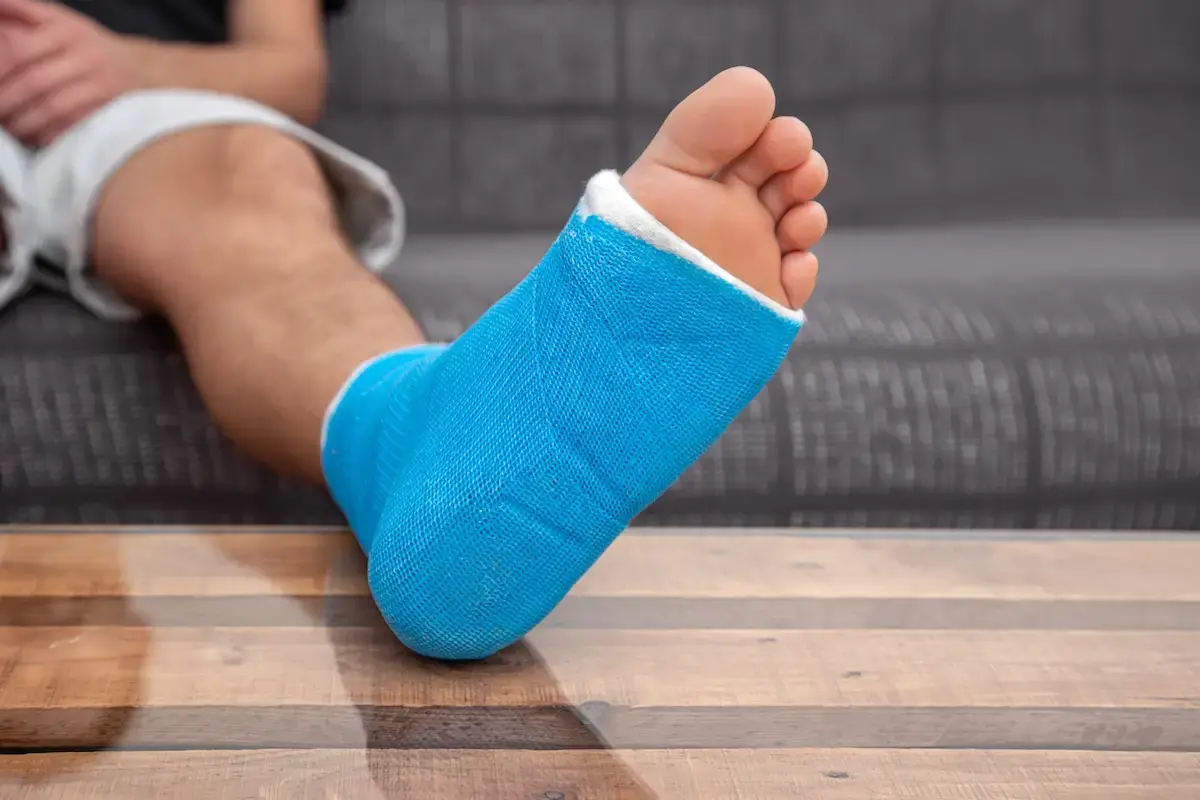Common Causes of Foot Injuries at Work
Foot injuries can happen in virtually any work environment, from construction sites and factories to offices and retail stores. These injuries often result from hazards that are preventable with proper safety measures.
Some of the most common causes of foot injuries at work include:
- Slips, Trips, and Falls: Wet floors, uneven surfaces, or poor lighting can lead to falls that cause fractures, sprains, or other foot trauma.
- Falling Objects: Dropped tools, materials, or equipment can crush toes or feet, especially in industrial or construction settings.
- Repetitive Motion and Overuse: Jobs that require constant standing, walking, or lifting can cause stress fractures, plantar fasciitis, and other overuse injuries over time.
- Heavy Machinery and Equipment Accidents: Forklifts, pallet jacks, and other machinery can cause severe foot injuries if not used or maintained properly.
- Improper Footwear: Lack of protective footwear or shoes that don’t provide adequate support can contribute to both acute and chronic foot problems.
- Exposure to Hazardous Substances: Chemicals or extreme temperatures can cause burns, frostbite, or other injuries to unprotected feet.
.jpg)



